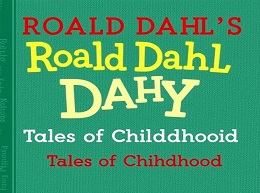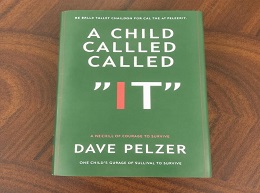Boy: Tales of Childhood

Delving into Roald Dahl's "Boy: Tales of Childhood" – A Captivating Memoir
Roald Dahl, celebrated for his imaginative children's books, offers a different but equally enchanting experience in his memoir, Boy: Tales of Childhood. This autobiography, which recounts the author's early years, is a compelling mixture of humor, nostalgia, and poignant reflections. Boy provides a window into the formative experiences of one of the most beloved storytellers of the 20th century, making it a must-read for fans and newcomers alike.
The Charm of Early Recollections
Dahl's memoir is not a conventional autobiography. Instead of chronicling every event in his early life, he selects vivid, impactful episodes that reveal the essence of his childhood. These tales are imbued with the charm and wit characteristic of his writing, engaging readers from the first page.
Example: The Mouse Plot
One of the most memorable stories in Boy is the "Great Mouse Plot of 1924." Dahl recounts how, as a young boy, he and his friends conspired to place a dead mouse in a jar of gobstoppers at the local sweet shop, owned by the ill-tempered Mrs. Pratchett. This mischievous act and its consequences are described with a mix of suspense and humor, capturing the innocence and rebellious spirit of childhood. The Mouse Plot exemplifies Dahl's ability to find adventure and amusement in ordinary events, a skill that would later define his career as a writer.
School Days: A Mix of Joy and Hardship
Dahl's accounts of his school days are a mix of joyful memories and harsh realities. His descriptions of life at Llandaff Cathedral School, St. Peter's Boarding School, and Repton School offer a glimpse into the British educational system of the early 20th century.
Example: The Canning Incident
The story of the "Canning Incident" at St. Peter's is both shocking and revealing. Dahl describes the brutal caning he and his classmates received from the headmaster for minor infractions. This episode exposes the severe disciplinary methods of the time and highlights the emotional resilience required to endure such treatment. Despite these hardships, Dahl's narrative is laced with a wry humor that prevents the memoir from becoming overly somber.
Family Influence and Early Losses
Family plays a crucial role in Dahl's early life, and Boy pays tribute to his parents and siblings. His father's death when Dahl was just three years old had a profound impact on his family, forcing his mother to raise six children alone.
Example: The Norwegian Holidays
Dahl's fond recollections of family holidays in Norway provide a counterpoint to the more difficult experiences. These trips were filled with adventure and joy, such as the annual expeditions to the fjords and the excitement of fishing and exploring. These moments of happiness and freedom stand out in his memory and are described with great affection.
The Genesis of a Storyteller
Throughout Boy, readers can see the early signs of Dahl's storytelling genius. His knack for observing and recounting the peculiarities of people and events is evident even in his childhood anecdotes.
Example: The Matron and the Headmaster
Dahl's portrayal of the characters he encountered, such as the formidable matron at St. Peter's or the eccentric headmaster at Repton, showcases his talent for creating vivid, memorable personalities. These early observations undoubtedly influenced his ability to craft the larger-than-life characters found in his later works.
A Blend of Humor and Pathos
One of the strengths of Boy is Dahl's ability to balance humor and pathos. While he does not shy away from describing the more painful aspects of his childhood, he also infuses his stories with a sense of wonder and amusement.
Example: The Motor-Car Episode
The episode involving Dahl's nose being nearly sliced off in a car accident is a perfect example. Despite the seriousness of the incident, Dahl recounts it with a lightheartedness that keeps the reader engaged. His ability to find humor in the midst of adversity is a recurring theme in the memoir.
Reflections on Education and Corporal Punishment
Dahl's memoir also serves as a critique of the educational practices of his time. His experiences with corporal punishment and authoritarian teachers reflect a system that was often more about control than nurturing young minds.
Example: The Boazer System
At Repton, Dahl encountered the "boazer" system, where senior boys had significant authority over younger students. This hierarchical structure, which often led to bullying and abuse, is depicted with a critical eye. Dahl's reflections on these experiences provide valuable insights into the impact of such practices on children's development.
The Influence of Dahl's Mother
Dahl's mother, Sofie Magdalene Dahl, emerges as a central figure in Boy. Her strength and determination in the face of adversity profoundly influenced Dahl's life and writing.
Example: The Importance of Stories
Dahl credits his mother with fostering his love for stories. Her own vivid tales about trolls and other mythical creatures captivated young Dahl's imagination and sowed the seeds for his future career. This nurturing of creativity and imagination is a recurring theme in the memoir.
The Legacy of Boy
Boy: Tales of Childhood is more than just an autobiography; it is a testament to the resilience of the human spirit and the power of storytelling. Dahl's ability to transform his personal experiences into engaging narratives is what makes this memoir so compelling.
Example: Connecting with Readers
Dahl's honest and straightforward writing style allows readers to connect with him on a personal level. His willingness to share both the joys and sorrows of his early life creates a bond with readers, making his stories all the more poignant and memorable.
In Boy: Tales of Childhood, Roald Dahl offers a rich tapestry of his early years, filled with humor, adventure, and reflection. His memoir not only provides insights into the experiences that shaped him but also showcases his extraordinary talent as a storyteller. For anyone interested in the life of one of the greatest children's authors of all time, Boy is an essential read. Its blend of humor and pathos, coupled with Dahl's keen observational skills, makes it a timeless and captivating memoir.













